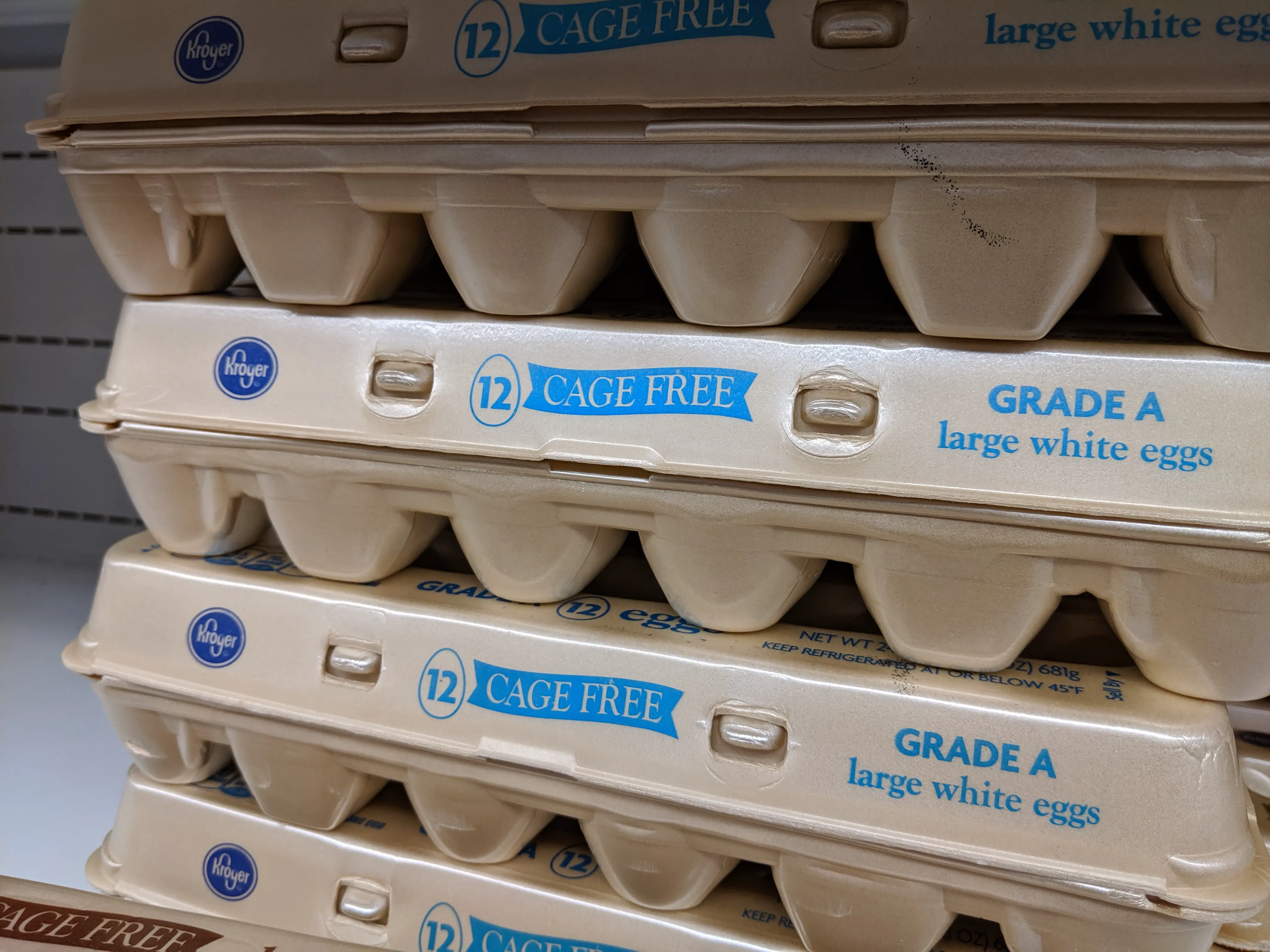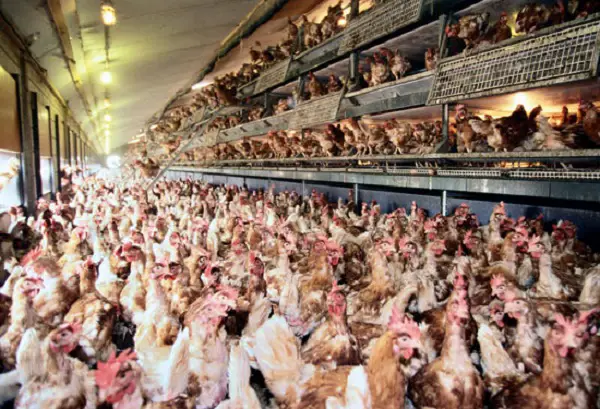
Photo via AltHealthWorks.com/Nick Meyer
Everyone wants to buy responsibly and to make purchases that support a more ethical and environmentally friendly standard of living these days, and big food companies know it.
Perhaps that’s why they’re happy to take advantage of well meaning consumers with labels that don’t tell the whole story, or spin a sort of “pastoral fantasy” as the blockbuster documentary ‘Food, Inc.’ put it, in order to rake in the dollars from unsuspecting shoppers.
One of the most egregious offenders in this department are “cage-free” eggs, a term that could signify any number of living conditions for the animals that are raised.
Cage-free eggs demand a premium price at most grocery stores, and yet there’s so much they don’t offer to the consumer, making them a poor value for any conscious, or health-conscious, consumer.
Six Reasons Not to Waste Your Money on “Cage-Free” Eggs
Is it time to take the step up and buy true pastured eggs from a local farmer, or to buy organic eggs instead?
Here are six reasons why you shouldn’t waste your money on cage-free eggs:
1. Standing Room Only- While it’s a plus that hens are not crammed into tiny cages like they are in factory farms, the term “cage-free” is often confused with the more meaningful term “free-range (both are unregulated, but free range or pastured are generally better; organic is the only term that offers official regulations such as non-GMO feed however).
Unfortunately, many cage-free birds are still packed into tight spaces that can’t possibly contain all of them comfortably which means they end up standing around in unsanitary, inhumane conditions like those seen in ‘Food, Inc.’ for example.
2. GMO Feed!- Contrary to what many might believe, there are no rules against feeding GMOs to “cage-free” hens, which are often stuffed full of GMO corn and soy.
Genetically modified foods are linked to many health problems, and when animals eat them they become concentrated in their byproducts, like eggs and milk.
3. No Privacy- While hens are given stands on which to lay their eggs, there’s virtually no privacy in which to lay them. This goes against their natural instinct, and causes them to become stressed, which affects both their quality of life and the quality of your food in a roundabout way.
4. A Little Something Extra- Antibiotics, and other methods may be used in cage-free eggs, as the term is not regulated.
While it is true that many “cage-free” producers are likely to have higher standards, it’s done on an individual and voluntary basis unlike with organic eggs where antibiotics are not allowed.
5. No Recess- In terms of being able to go outside, cage-free carries no cache.
Some places do allow outside access (oftentimes through small spaces only) but there are no regulations concerning cage-free birds and being allowed to go outside.
Better than birds stuffed eight to a cage as with conventional eggs, but still not much of an improvement.
6. You Might as Well Go Organic or Free Range- Considering that the price difference is usually not that much for what you get, it makes a lot more sense to just go all-in for the organic or free range eggs.
You’ll be getting eggs from a healthier, happier bird oftentimes with a deeper yellow yolk that’s far more nutritious, and one that will of course not be contaminated by GMOs or antibiotics.
And your purchase not only counts toward changing your own health but also toward changing the system.
The demand for free-range eggs remains relatively low according to industry insiders, but in the end we have the power to make a real change, rather than the cosmetic changes offered by “cage-free” eggs.
You can learn which organic brands are the best for benefits like outdoor access, natural sunlight and more by clicking on this link.
Thanks for reading! Click here to like AltHealthWORKS on Facebook. This article was first written in 2014 and updated in 2019.
Thanks for installing the Bottom of every post plugin by Corey Salzano. Contact me if you need custom WordPress plugins or website design.





